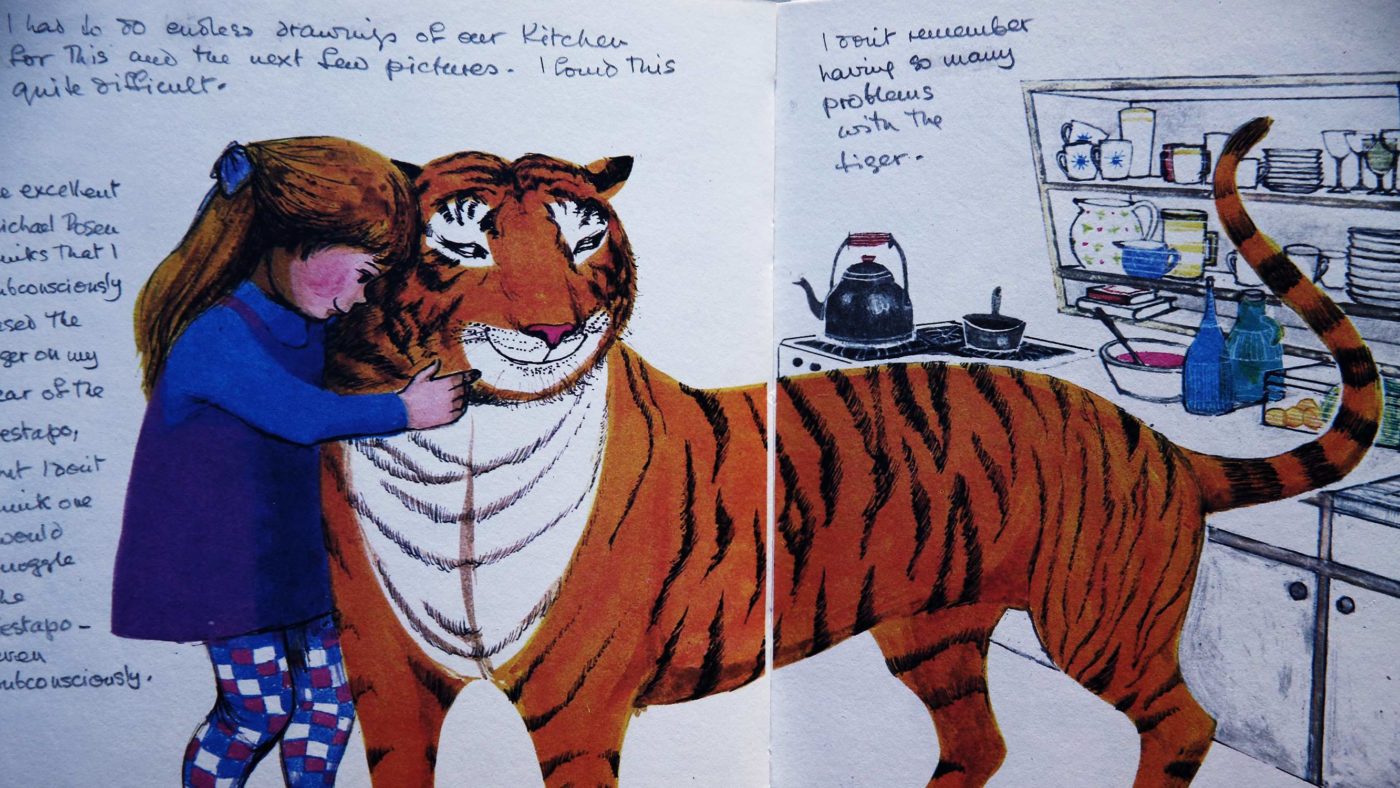I rarely wade into issues of wokery. Anyone who does risks giving oxygen to fringe fanatics and intensifying synthetic outrage. But occasionally it’s impossible not to be reeled in – and the Zero Tolerance controversy earlier this week is one of those times. More than half a century after its publication and two years after its author’s death, the beloved tale The Tiger Who Came To Tea has become the latest flashpoint in our never-ending culture war.
Zero Tolerance is an Edinburgh-based group that campaigns to end male violence against women. It has carried out an audit of books being read to infants in nurseries throughout Scotland, and singled out The Tiger for criticism, claiming it reinforces gender stereotypes.
The furore probably obviates the need to spell out plot, and perhaps a positive, unintended consequence of this mad censorship crusade will be a surge in book sales as bemused members of the public try to understand how a children’s story could cause ‘rape’ and ‘harassment’. But the title does that too: it’s about a tiger who comes to tea. OK, fine, it tells the tale of a tiger who arrives unannounced at a family home, inhales their food, and guzzles their water. When the father returns to find that all the food and drink is gone, he takes his wife and daughter, Sophie, out to a café for dinner.
Zero Tolerance’s co-director claims the book is ‘old-fashioned’ and ‘sexist’ because the tiger is male (rather than female or gender neutral), and the story concludes with the father saving the day. Now, tackling violence against women and girls is a noble, worthwhile endeavour, but it’s not one that will be achieved by taking books out of nurseries. Bear in mind too that the group coming up with this stuff is almost entirely state funded, receiving £176,770 in the year to March 2020.At some point, someone may ask whether this particular campaign represents a good use of Scottish Government funds.
Thankfully, this ill-conceived attack is unlikely to dent the book’s popularity, given that print sales passed 1 million in 2017. Like many girls, I loved it as a child – and I’m now a full-time working mother. Like many boys, my brother loved it, too – and he isn’t a domestic abuser.
The slippery slope argument has been made, and made well, by many over the course of this week. One commentator pointed out that if you ban nurseries from reading The Tiger, you should probably burn just about every children’s book written before 2010.
Take Julia Donaldson’s back catalogue: The Gruffalo (1995) has no female characters! A Squash and a Squeeze (1993) is about an old lady (ageism) who has to ask a wise old man to help resolve spatial issues (sexism)! And in The Scarecrows’ Wedding (2014), Harry O’Hay promises Betty O’Barley the perfect day, and it takes an act of heroism for him to deliver on that vow! Zog (2010) – the tale of a dim dragon who sets his wing on fire and flies into a tree, only to be healed by a female doctor – presumably passes the test.
I had a look at Zero Tolerance’s ‘Book list for improving gender equality and diversity’. It includes bedtime classics such as Sarah Savage’s Are you a boy or are you a girl? which helps children ask the ‘big questions’ about identity and gender. Or Jessica Love’s Julián Is a Mermaid about a young boy who wants to participate in the Coney Island Mermaid Parade. Clearly publishers believe there is a market for these narratives (which suggests the shift towards ever-more diverse texts will happen organically), and kudos to anyone who is able to master writing children’s books. As Meghan Markle, David Walliams and a former member of McFly have exemplified, it’s not easy to do well.
But Judith Kerr succeeded. She wrote and illustrated 35 books for children. In 2018 the ‘twinkly’ author featured in a fawning Guardian interview which led with the quote “I like this generation of teenagers. They seem kind and idealistic”. If Zero Tolerance have their way, the next generation of teenagers won’t have grown up with Kerr’s magnificent picture stories on their bedside tables, and their lives will be a little poorer for it.
Born to a Jewish family in Berlin in 1923, Kerr escaped from Hitler’s Germany with her parents and brother when she was nine years old. Over the years, interviewers have repeatedly asked whether the titular tiger was a metaphor for Kerr’s experiences as a young child in the years before the Holocaust. “No,” she once replied, “it is about a tiger who comes to tea and is very hungry”.
Progressives have always liked to see themselves as an enlightened minority in a bigoted society. By definition, elites are a small group – so it’s a problem when you’re a status-obsessive in a tolerant and socially liberal nation. How do you maintain that mark of distinction, and avoid being a victim of your own success? You create and construct offences anywhere you can find them – portraits of the Queen. Midwives’ use of the term “breastfeeding”. Kids stories. My only hope is that one day these lunatics will run out of road, but there will be many casualties left on the side of it.
Click here to subscribe to our daily briefing – the best pieces from CapX and across the web.
CapX depends on the generosity of its readers. If you value what we do, please consider making a donation.


